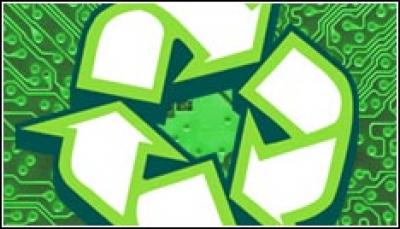IBM Recycles Old Laptop Batteries For Poor

The ultimate act of recycling? IBM turns old lithium-ion batteries into useful power supply for the poor
IBM researchers have figured out a very useful way to recycle the toxic lithium-ion batteries that traditionally power laptops, mobile phones and electric cars.
The researchers found that many of these old batteries could be successfully and recycled and repurposed in order to provide power for people who have no access to traditional power supplies.
Recycled Power
The IBM idea is potentially very helpful in tackling the growing e-waste problem. Lithium-ion batteries in particular are highly toxic, and it is estimated that 50 million lithium-ion batteries from laptops alone are discarded every year.
But an IBM study has found that many of these old batteries still have enough life in them to power homes in slums, townships, or other places where a mains power is problematic. Indeed, it is estimated that 40 percent of the world’s population does not have access to mains power.
Indeed, the IBM researchers discovered that 70 percent of these discarded batteries still had enough life in them to keep an LED light on more than four hours a day for a year.
The IBM researchers who came with this idea are based in India, and they successfully trialled the concept with street vendors in the Indian city of Bangalore this year.
According to MIT Technology Review, the researchers feel the adapted power packs, called UrJar, could light the homes in poor countries, especially when combined with LED lights.
“The most costly component in these systems is often the battery,” Vikas Chandan, a research scientist at the lab’s Smarter Energy Group, who led the project, was quoted as saying. “In this case, the most expensive part of your storage solution is coming from trash.”
The IBM researchers teamed up with a hardware R&D firm called RadioStudio. They opened up discarded laptop battery packaging and extracted individual storage units called cells. They tested each cell and selected the good ones, before joining them together with other good cells to create a refurbished battery pack. They also reportedly added charging dongles as well as circuitry to prevent overheating, before giving them to five users in Bangalore who lived in slums or operated sidewalk carts.
The users said the UrJar battery pack worked well, with the main feedback being the need for a brighter light and rat-resistance wiring.
 E-Waste Problem
E-Waste Problem
IBM is not considering developing the UrJar battery pack as a business, but reportedly says the technology could be offered free to poor countries.
The IBM solution could be a useful addition to measures to tackle the growing problem of e-waste. Growing e-waste mountains are often found in under developed countries with the least resources to tackle the issue, and the old equipment does pose a health risk to local people.
Last December, a new tech recycling plant was opened in Nairobi, Keyna. That site, backed by new regulations, aimed to create a business out of safely processing discarded electronic equipment.
Like recycling? Our Green Quiz is for you!
